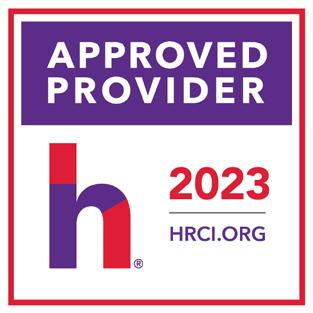Fire Watch











In 1976, County voters passed an initiative Measure that became effective in 1977 and was followed until 2021. The Measure required the County Board of Supervisors (Board) to annually set deputies’ salaries at a level equal to the average corresponding salaries in three neighboring counties. In 1980, another voter initiative established the County’s charter. Two voter initiatives to repeal the salary setting Measure failed. In September 2021, the Board introduced an ordinance that repealed the salary setting Measure and amended the County Code to read that, “…the Board …shall negotiate and set compensation for all employees represented by [the DSA and others]”. The Board did not seek voter approval before issuing the ordinance. The DSA filed a writ of mandate arguing that the County violated the Elections Code by failing to submit the repeal to voters.
The County filed a motion for summary judgment (MSJ) to have the case dismissed. The County argued the Measure was unconstitutional from the outset, and therefore it was not necessary to submit the ordinance to repeal the Measure for voter approval. The Superior Court agreed.
The Court ruled that the California Constitution allows the Board, as the governing body, to provide for the number, compensation, tenure, and appointment of employees. Though the Constitution allows the Board to delegate the power to set employee compensation, the Court found no such delegation here. Rather, the voters passed the Measure without authority to do so, making it unconstitutional and invalid at its inception.
Even assuming the Measure was valid at its inception, the Court found the County Charter and MeyersMilias-Brown-Act (MMBA) also both independently superseded the Measure. The Court held the Charter unequivocally delegates authority to the Board to fix employee compensation. Moreover, the MMBA requires public agencies to meet and confer in good faith on “wages, hours, and other terms and conditions of employment.” Here, while the Measure did not eliminate that duty, it effectively rendered salaries non-negotiable because it mandated a set formula for calculating wages annually. It further eliminated the ability for the Board to implement a last, best, and final offer under the MMBA.
Accordingly, as a matter of law the County was entitled to full dismissal of the lawsuit.
After approximately nine years of service, a city police officer received promotion to sergeant. One year later, the sergeant met with his supervisor to discuss the sergeant’s use of force in an incident. The supervisor reminded the sergeant of his supervisory responsibilities. In his next performance evaluation, his supervisor again noted several areas the sergeant needed to develop, including effectively analyzing situations and decisionmaking, as well refining his written communication. The sergeant’s evaluation noted that he would put himself in the middle of an incident, as opposed to supervising it. The sergeant’s superiors counseled him again in consecutive months later that year, and finally placed him on a Performance Improvement Plan (PIP).
The PIP once again addressed the sergeant’s shortcomings in analyzing situations, decision-making, leadership, and written communications.
In the seven months after the PIP was in place, the sergeant did the following:
• Approached the suspects in a potentially stolen vehicle with both his TASER and service pistol drawn and pointed at the subjects for approximately 15 seconds.
• Initiated a vehicular pursuit that resulted in the subject vehicle driving extremely recklessly at high speeds.
• Failed to follow-up with another an officer’s missing person report and the report was not completed or approved until nearly five days later.
• Failed to turn in numerous traffic citations and corrected citations.
• Admitted to having an extramarital affair with an agent in the past, but only after that agent was assigned to duty on the sergeant’s shift almost two years later.

The hearing officer upheld the demotion after finding that the police chief duly considered the appropriate level of discipline and acted within his discretion to protect the public service, based on all the circumstances presented.
NOTE:
The hearing officer noted that reasonable persons could differ on whether the sergeant’s misconduct and performance failures warranted demotion. Because the city supported its written disciplinary decision with how the sergeant’s conduct harmed the public service, the discipline was upheld.
Brian Hawkinson, an Associate in our San Francisco office, provides legal expertise to public agencies concerning labor and employment matters. Prior to joining LCW, Brian worked for an Oakland based civil rights law firm where he actively participated in all stages of litigation: from screening clients, investigating claims, and filing complaints to engaging in discovery, resolving disputes with opposing counsel, and responding to dispositive motions.
Jordan Carman, an Associate in our Los Angeles office, provides labor, employment, and education law expertise to our public and private education clientele. Prior to joining LCW, Jordan worked at The Child Care Law Center in Berkeley, CA where she secured childcare subsidies for low-income clients and provided technical assistance to the Department of Social Services on the drafting of regulations and sub-regulatory guidance affecting families and childcare providers.
Chase R. Booth

SanDiego
Monica J. Chinchilla



SanFrancisco
Sam M. Holmberg

LosAngeles
Jaqueline B. Hubbell
LosAngeles
Abigail E. Lee

Sacramento
Juliana B. Pech
LosAngeles
Cindy Rivas
LosAngeles
Allison E. Sipe


SanFrancisco

Todd Roberts worked as a Safety and Environmental Coordinator for the Springfield Utility Board for over two years. During that time, the Springfield personnel policies stated that 1) employees were expected to keep unscheduled absences and tardiness to a minimum, 2) requests for time off had to be made in advance, and 3) dishonesty would generally result in immediate dismissal.
In August 2019, Roberts took unscheduled time off. He alerted Springfield that morning and stated “I will be out all today working on the kids school/sport registrations and such to ensure they are all ready for school next week.” Four minutes later, however, Roberts emailed a co-worker: “I’m looking at your boat’s slip right now headed to the Pig N Pancake.” Roberts later attempted to delete this email.
After discovering this possible misrepresentation, Springfield hired two attorneys to investigate the incident and provide legal advice. As part of this investigation, Roberts was admonished both in writing and orally. When Roberts was told in writing that “While this matter is being investigated, you are prohibited from engaging in communication in any form with any employees of SUB. … Any contact with SUB employees, including your supervisor, regarding this matter will constitute gross insubordination and be subject to disciplinary action…”
At the beginning of Roberts’ first interview, the investigating attorney stated: “To protect the integrity of the investigation, you are restricted from discussing it with other employees of SUB while it is ongoing”. At the beginning of Roberts’ second interview the investigating attorney stated: “I’m going to instruct you not to communicate with any potential witnesses about the information that you’ve given . . . Do not communicate with potential witnesses we’ve discussed about the investigation or about the information you’ve provided in the investigation.” The attorney then clarified that the communication restriction applied only during the pendency of the investigation, did not apply to Roberts’ discussions with his wife, did
not prevent Roberts’ attorney from contacting witnesses on Roberts’ behalf, and that Roberts would have the opportunity to contact potential witnesses when the investigation was complete. Roberts was terminated because of the findings of the investigation. He sued, alleging that Springfield violated his First Amendment right to free speech by instructing him not to speak with other employees during the investigation. A district court granted summary judgment for Springfield. Roberts appealed to the Ninth Circuit Court of Appeals.
The Ninth Circuit applied the Pickering v. Board of Education balancing test. This test first determines whether the employee spoke as a citizen on a matter of public concern. If not, there is no First Amendment issue. If the employee did speak as a citizen on a matter of public concern, then the court considers whether the relevant government entity had an adequate justification for treating the employee differently from any other member of the public.
Speech involves matters of public concern if it relates to any matter of political, social, or other concern to the community, or if it is a subject of legitimate news interest.
Here, the restriction on speech affected Roberts’ personal ability to discuss only the investigation into his own alleged violation of SUB personnel policies governing time off and employee dishonesty. Further undercutting Roberts’ claim, his attorney was not restricted from contacting any SUB employees about Roberts’ alleged actions during the investigation. The Court held the speech was not about a matter of public concern.
Roberts argued that the “gag order” was not limited to topics related to the investigation but rather encompassed speech regarding alleged mismanagement and employer failings. The Ninth Circuit reviewed the various admonitions he was given, which on balance, showed that the restriction only pertained to communication with Springfield employees or other potential witnesses regarding the ongoing investigation into his alleged misconduct. The Ninth Circuit therefore affirmed the District Court’s grant of summary judgment for Springfield.
Roberts v. Springfield Utility Board, 2023 WL 3402213 (9th Cir.).
Note:
This case differs from the PERB cases that prohibit employers from placing blanket gag orders on employees during an investigation, unless the employer can prove that an employee will fabricate or spoil evidence. (See Los Angeles Community College District (2014) PERB Dec 2404-E.) The PERB cases rely on the employee’s collective bargaining rights to communicate with co-workers regarding wages, hours and working conditions. This Ninth Circuit case contains a First Amendment analysis only. Congratulations



Super Lawyers is a rating service of outstanding lawyers from more than 70 practice areas who have attained a high-degree of peer recognition and professional achievement. The selection process is multi-phased and includes independent research, peer nominations and peer evaluations. Each year, no more than 2.5 percent of the lawyers in the state are selected as Rising Stars.





4 years
2 years
2 years
From May 2010 to April 2014, a woman with the initials ACR worked as a bartender at Kolla’s, a nightclub in Orange County. On April 5, 2014, ACR complained to the owner, Gonzalo Estrada, that she had not been paid wages owed for her previous three shifts of work. Estrada responded by threatening to report ACR to immigration authorities (hence the initials instead of her full name), terminating her employment, and telling her never to return.
In June 2014, ACR filed a complaint against Estrada and Kolla’s with the California Division of Labor Standards Enforcement (DLSE), which opened an investigation. After determining that Estrada’s immigration-based threats and termination of ACR violated California law, DLSE notified Estrada and Kolla’s of proposed remedies, including payment of lost wages to ACR, reinstatement of ACR’s previous position, and payment of civil penalties to ACR and DLSE. After Estrada and Kolla’s declined to accept DLSE’s proposed remedies, the Labor Commissioner sued them for violations of the Labor Code, including retaliation in violation of Section 1102.5(b).
The trial court granted judgment for DLSE but ruled against DLSE on the Section 1102.5(b) claim. The Court of Appeal upheld this ruling and the DLSE thereafter appealed to the California Supreme Court.
Labor Code Section 1102.5 prohibits employers from retaliating against employees for “disclosing information” concerning
suspected violations of the law either internally or to government or law enforcement agencies. The crux of this case, revolved around what it means to disclose information. Some California courts have held that the report of information that was already known does not constitute a protected disclosure because the ordinary meaning of the verb “to disclose” is to reveal something that was hidden and not known.
It is for this reason that the trial court and Court of Appeal held against DLSE; they both opined that because Estrada was the owner of Kolla’s, he already knew that he had not paid ACR and thus her telling him this was not a disclosure under Labor Code Section 1102.5(b).
On the other hand, other California courts have held that using this definition of “disclose” would defeat the legislative purpose of the law, which is to encourage and protect whistleblowing employees. If only the first employee to blow the whistle was protected, employees would be unwilling to report unlawful conduct for fear that another employee had already done so. The California Supreme Court found that the Court of Appeal’s definition of “disclose” would defeat the law’s purpose. The Court first noted that dictionary definitions of disclose include “to make openly known” and “to open up to general knowledge.” The Court surmised that these definitions do not require that the topic of disclosure be unknown to the recipient.
The Court also made clear Labor Code Section 1102.5 was intended to protect every employee, not just the first employee to report. The protection should also not be dependent on whether the information was already known to the wrongdoer.
People ex rel. Garcia-Brower v. Kolla's, Inc., 2023 WL 3575254 (Cal.).
Note:
This case makes it clear that the protections of Labor Code Section 1102.5(b) extend to all reports
of wrongdoing regardless of previous knowledge and whether another employee had reported the misconduct. Employers should respectfully receive any information of potential misconduct or unlawful acts.
The State Board of Equalization (Board) hired Rafi Kourounian as a tax auditor in 1989. He received two promotions: once in 2001 to “associate tax auditor” and again in fall 2012 to “business tax specialist”. The latter promotion included a one-year probationary period.
In mid-October of 2012, supervisors Doris Chiang and Warren Klomp provided him a taxpayer’s complaint to investigate. The complaint alleged that a co-worker, Silva Saghbazarian, had discriminated against a taxpayer due to his age. Following his investigation, Kourounian found the co-worker had in fact discriminated against the taxpayer based on his age, and criticized the chain of command, which included Chiang, for not following required procedures. He reported his findings back to both Chiang and Klomp.
In January 22, 2013, Kourounian was placed under Saghbazarian’s direct supervision. As her direct supervisor was Chiang, Kourounian was now being supervised by the two individuals he had criticized in his investigative report. In March 2013, Kourounian filed an EEO complaint that alleged that Saghbazarian had spied on him and sabotaged his job performance. Kourounian alleged that Saghbazarian’s conduct was retaliation because of his findings in the taxpayer complaint investigation. Chiang then became Kourounian’s direct supervisor. After allegedly experiencing similar instances of sabotage, Kourounian filed a second EEO complaint in May 2013, alleging retaliation for filing the first EEO complaint. In August or September 2013, while still on probation for the position of business tax
specialist, he was officially rejected for the promotion and returned to his previous position.
Kourounian administratively appealed the decision to rescind his promotion and a settlement was reached; the Board would return him to his position of Associate Tax Auditor and remove all documentation involving the rejection pending probation from his personnel file, and in exchange Kourounian released all claims for the same, except for both claims of retaliation filed with the EEO.
When Kourounian returned to work, the similar mistreatment by management continued, and subsequently Kourounian filed a complaint alleging retaliation with the California Department of Fair Employment and Housing (now California Civil Rights Department).
At trial, the court admitted evidence regarding Saghbazarian’s alleged conduct before the March 2013 EEO complaint and the jury ultimately found for Kourounian, awarding him over $425,000. The Board appealed.
The California Court of Appeal found the trial court abused its discretion by admitting evidence of Saghbazarian’s actions before the EEO complaint. The Court reasoned that FEHA only protects against retaliation for protected activities, and an investigation of a taxpayer complaint was not protected activity. Here, the only protected activities were the March and May EEO complaints. Therefore, adverse actions taken before a protected activity cannot constitute retaliation.
The Court of Appeal found that the trial court further abused its discretion by admitting hearsay evidence that negatively impacted the jury’s perception of the entire case. The Court of Appeal reasoned that the hearsay evidence prevented the Board from having a fair trial, and thus the Court reversed the judgment entirely.
Kourounian v. California Department of Tax and Fee Administration, 2023 WL 3612540 (Cal Ct. Appeal).
Deanna Hodges began working for Cedars-Sinai Medical Center in 2000 as an administrator with no patient care responsibilities. In 2017, Cedars announced a new policy requiring all employees, regardless of their role, to be vaccinated by the beginning of flu season. This was the latest expansion to Cedars’ longstanding efforts to limit employee transmission of flu, which had become more urgent following multiple patient deaths relating to flu.
As required by law, Cedar’s policy made exemptions for “valid medical or religious” reasons. Cedars established a very thorough exemption evaluation process through which a panel would grant an exemption only for a “recognized medical contraindication”. Hodges did not want to get the flu vaccine, despite not having any contraindication to the flu vaccine. Hodges and her doctor merely stated on the exemption form that Hodges has a “History of multiple allergies post treatment for colorectal cancer with chemoradiation. Extreme unwell state results from injections and immunizations. No direct patient contact.” Hodges’ doctor stated in his deposition that he was not communicating that Hodges had a recognized contraindication to the flu vaccine.
Hodges submitted her form. She was informed that her form was illegible and she would be suspended and terminated if she did not agree to get the flu vaccine. Hodges attempted to convince a variety of personnel that her exemption request was valid and should be granted. The panel denied her exemption request. Hodges’ doctor then attempted to persuade her to receive the vaccine. Hodges steadfastly refused and was terminated effective November 9, 2017.
Hodges filed a lawsuit against Cedars alleging: 1) disability discrimination; 2) failure to engage in the interactive process; 3) failure to accommodate a disability; 4) retaliation; 5) failure to take reasonable steps to prevent discrimination, harassment, and retaliation; and 6) wrongful termination. Cedars received summary judgement and Hodges appealed to the California Court of Appeal.
After a thorough review of the evidence, including depositions, declarations, and exhibits, the Court of Appeal decided that Hodges did not have a medically valid contraindication that constituted a disability. Even if she did, the Court of Appeal stated, Cedars terminated Hodges for a legitimate nondiscriminatory reason; noncompliance with a bona fide employer policy aimed at protecting and saving lives.
Hodges v. Cedars-Sinai Medical Center, 2023 WL 3558767 (Cal. Ct. Appeal).
To view these articles and the most recent attorney-authored articles, please visit: www.lcwlegal.com/news
• Recently published in PSHRA’s Public Eye Magazine, LCW Partner Mark Meyerhoff speaks on employment, social media, and the First Amendment, specifically noting that “social media has resulted in public agencies dealing with free speech issues more often, due to the likelihood that somebody will report public employee speech that appears to be problematic.” In relation to the 2022 9th circuit case Hernandez v. City of Phoenix, Meyerhoff states “the balance between an employee’s First Amendment rights and an agency’s right to discipline an employee or restrict an employee’s speech is a difficult analysis. Agencies must be mindful that social media speech may be protected if it can be reasonably argued that the speech relates to a matter of public concern. Meyerhoff was also recently featured as a guest expert on PSHRA’s Public Eye Podcast, where he speaks on the above issues.

The LCW Labor Relations Certification Program is designed for labor relations and human resources professionals who work in public sector agencies. It is designed for both those new to the field as well as experienced practitioners seeking to hone their skills. Participants may take one or all of the classes, in any order. Take all of the classes to earn your certificate and receive 6 hours of HRCI credit per course!

Benefits of Certification to the Participant:
• Increase knowledge in all areas of Labor Relations
• Increase your value to your agency
• Increase respect and recognition in the field
• Increase opportunity for upward mobility
• Increase marketability and ability to compete in the job market
• Increase professional credibility

Benefits of Certification to the Agency:
• Increase the level of competency of the individual
• Encourage and improve job performance
• Acknowledge an individual who has developed a high level of professionalism
• Use as an aid for retention and recruitment
Join our upcoming HRCI CertifiedLabor Relations Certification Program Workshops:
The use of this official seal confirms that this Activity has met HR Certification Institute’s® (HRCI®) criteria for recertification credit pre-approval.
Visit our website: www.lcwlegal.com/lrcp

Maximizing Performance Through Documentation, Evaluation, and Corrective Action
This 2.5 hour workshop will provide managers and supervisors with techniques, skills, and tools to maximize employee work performance. Attendees will learn how to:
• Identify, develop and communicate performance goals
• Draft and provide effective performance evaluations
• Document employee performance and conduct
• Use a “supervisor’s file” appropriately and effectively

• Eliminate avoidable “surprises” from year-end reviews and counseling interactions
• Plan and implement effective corrective action, including discipline if warranted
Experienced and newer Department Heads, Managers, Supervisors, and Human Resources Staff – Public Safety included.
For more information, visit our website here!
Whether you are looking to impress your colleagues or just want to learn more about the law, LCW has your back! Use and share these fun legal facts about various topics in public safety.
• A Ring camera captured a California firefighter rescuing his 1-year-old from drowning in his pool, after the toddler managed to navigate around the proactive-precautions put in place, including a gate around the pool. The toddler is healthy and well.
• After receiving an evening call about a commercial fire, forty Los Angeles firefighters successfully knocked down a challenging fire in less than 30 minutes in a Van Nuys building. According to authorities, the fire crews “overcame forcible entry challenges, both on the exterior and encountering additional security measures inside, to gain access for hose lines to advance, as other crews ascended ladders to the roof to provide vertical ventilation.”
• Proposed Senate Bill 623 aims to extend by seven years a provision in existing law that says PostTraumatic Stress Disorder (PTSD) qualifies as an occupational illness for purposes of workers’ comp for firefighters, police, and other first responders. The extension would last through Jan. 1, 2032, instead of the current expiration of 2025.
• State Farm Insurance will stop accepting new homeowners insurance applications in California due to wildfires and related construction costs.

For more information on some of our upcoming events and trainings, click on the icons below:




LCW has 30+ consortiums across the State! Consortium members enjoy access to quality training throughout the year, discounts on other LCW products and events, and unlimited, complimentary telephone consultation with an LCW attorney on matters relating to employment and labor law questions (including questions involving COVID-19, supervisory skills, and negotiation matters!). We’ve outlined a recent consortium call and the provided answer below. Client confidentiality is paramount to us; we change and omit details in the ERC Call of the Month.
We are planning to rescind conditional offers our agency extended to two firefighter trainee candidates who failed one component of our pre-employment checks. If a candidate requests details, what are we required to disclose? For example, can we share the specific component they failed such as the criminal history check, the psychological evaluation, or physical exam?

What an agency is required to disclose after revoking a conditional offer of employment depends on the reason for the revocation. For example, an applicant’s criminal history reveals certain categories of convictions, then an employer must follow the detailed steps that are contained in California Government Code Section 12952. The employer must first make an individualized assessment regarding whether the applicant’s conviction history has a direct and adverse relationship with the specific duties of the job. That assessment must include: the nature and gravity of the conviction; the time passed since the conviction and completion of the sentence; and whether the conviction is job-related. This law also outlines certain types of convictions that employers cannot consider. If the individualized assessment causes the employer to consider disqualifying the applicant, the employer must first provide written notice of its preliminary decision to disqualify to the applicant, along with a copy of the conviction history report, if any. The applicant then has five business days to respond. The employer must consider the applicant’s response before making a final decision in writing to the applicant.
Before an employer revokes a conditional offer based on results of a psychological evaluation or a medical exam, then the employer must first: engage in good faith in the disability interactive process. That process includes: discussing all potential accommodations; offering reasonable accommodations; and documenting that process. It is only after the employer determines that the candidate cannot perform essential job functions with or without reasonable accommodations that the employer can lawfully make the decision to revoke. As part of that interactive process, the agency would need to notify the candidate what the medical/psych exam revealed.
On January 1, 2023, Assembly Bill 2777 (AB 2777), also known as the Sexual Abuse and Cover-Up Accountability Act (the “Act”), officially became the law. The Act provides sexual abuse victims an opportunity to seek justice in California. It is important to note that while the Act revives claims against various entities, public entities are exempt from the Act.
Originally, the statute of limitations for sexual abuse claims that occurred on or after the victim’s 18th birthday was 10 years or within three years from the date the victim discovers or reasonably should have discovered that an injury or illness resulted from those acts.
Today, the Act provides a three-year window for survivors of sexual assault to file a claim and recover damages as a result of crimes that occurred on or after January 1, 2009. In other words, from January 1, 2023 through December 31, 2026, sexual assault and abuse claims, which would otherwise be barred by the statute of limitations, will be revived and officially be eligible to be brought in civil court, provided that those claims were barred solely because of the expiration of the statute of limitations. As a result, California plaintiffs will now have a window of opportunity to secure justice on their own terms for crimes such as rape, sexual assault, and sexual abuse, as well as any related claims arising out of the sexual assault, such as sexual harassment and wrongful termination, that occurred on or after January 1, 2009.

Separately, the new legislation has also created a one-year revival window which allows victims to bring sexual assault claims (including claims arising out of sexual assault) involving cover-ups that would otherwise be barred, before January 1, 2023, because the statute of limitations expired. Survivors may bring these claims between January 1, 2023 and December 31, 2023. A cover-up is defined as: “A concerted effort to hide evidence relating to a sexual assault that incentivizes individuals to remain silent or prevents information relating to a sexual assault from becoming public or being disclosed to the plaintiff, including, but not limited to, the use of nondisclosure agreements or confidentiality agreements.”
In order to qualify for the cover-up claim under the one-year lookback window provision, the plaintiff needs to allege the following: (1) He, she, or they were sexually assaulted; (2) One or more entities are legally responsible for damages stemming from that sexual assault (“Legally responsible” means that the entity or entities are liable under any theory of liability established by statute or common law, including, but not limited to, negligence, intentional torts, and vicarious liability); and (3) Said entities, which may include employees, officers, directors, representatives, or agents, engaged in a cover-up or attempted cover-up of a previous instance or allegation of sexual assault by an alleged perpetrator of such abuse.
It is important to note the Act does not revive any of the following claims:
(1) A claim that has been litigated to finality in a court of competent jurisdiction before January 1, 2020;
(2) A claim that has been compromised by a written settlement agreement between the parties entered into before January 1, 2020; or
(3) A claim brought against a public entity.
What Should Employers do in light of AB 2777?
It is now more important than ever for employers to review their anti-sexual harassment, discrimination, and retaliation policies and ensure managers and supervisors are adequately trained and informed on the legal ramifications of sexual assault and to avoid any practices that would incentivize silence surrounding sexual assault in the workplace. Employers should also monitor employee files for any complaints of sexual assault or harassment and promptly investigate any such complaints, and ensure records are created and filed properly.
View the full blog here.

 Liebert Cassidy Whitmore
Liebert Cassidy Whitmore